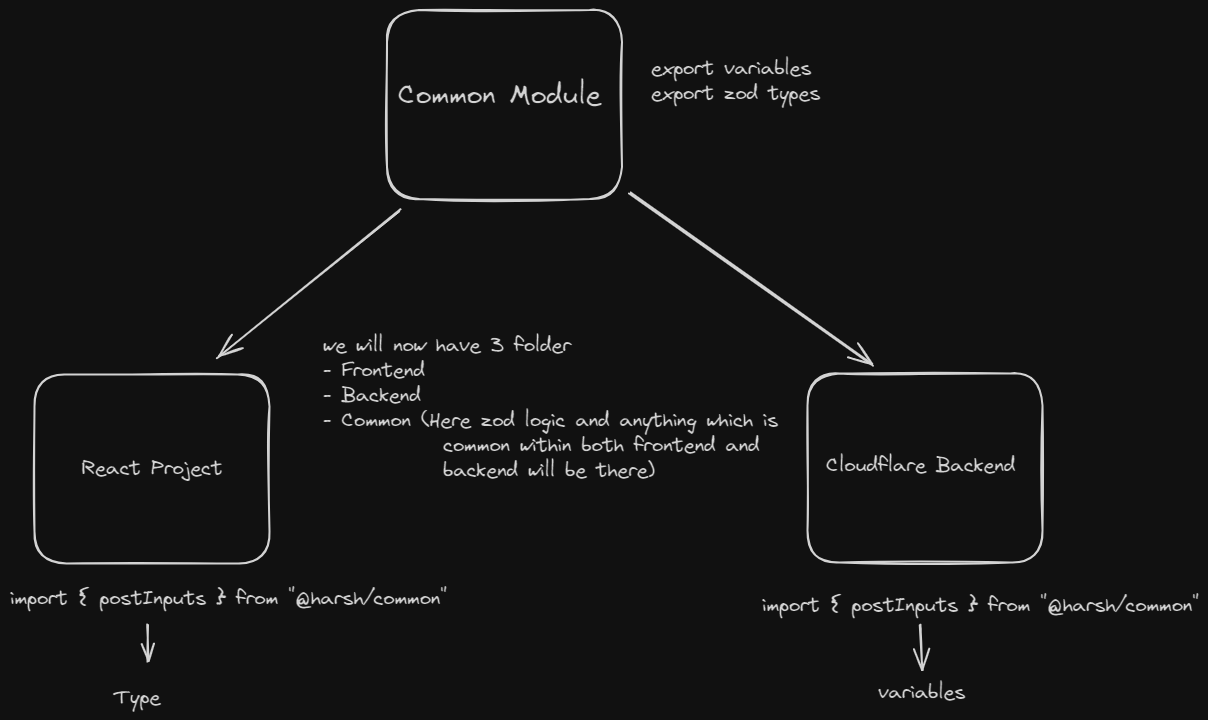An open-source application built using Hono, React and everything a production-ready application has.
Warning
This app is a work in progress. I'm building this in public. You can follow the progress on Twitter @heyy_harshh.
This project experiments to see how a modern app (with Cloudflare workers, Postgres DB, Hono, Prisma, JWT and React) would work in a Production-ready application.
- React for Frontend
- TailwindCSS for CSS
- Hono for Backend
- Typescript as Language
- Postgres for Database
- Cloudflare for serverless functions
- Prisma for ORM and connection pool
- JWT for authentication
- Zod for Validation
- Initialize using Hono
- Created Handlers for signup, sign-in, and blogs
- Initialize Database using Neon.tech Postgres and Prisma
- Created Schema for Users and Blogs
- Set up JWT auth token using Hono
- Make Separate Routes for User and Blog
- Tested all Routes and Deployed Backend to Cloudflare
- Added Zod Validation
- deployed NPM package [explained below]
- Routing in Frontend
- Developed Signin and Signup Pages
- Connection to Backend via Axios
- Making the data available via bulk
- Dashboard ready for use
Here are the list of reasons, with advantages
- Code Reusability (if we don't use the common module, we have to define the type and zod implementation on both frontend and backend)
- Consistency (Suppose you change something in the frontend, you have to do it in the backend too, or else your application will break)
Important
For the frontend we need type or interface For the backend we need variables, so we can directly use the same file But in the case of Zod, it gives us the benefit, that we can create a a variable and then export it as infer too.
//for Backend
export const signupInput = z.object({
username: z.string();
password: z.string();
})
//type inference in Zod
//for frontend
type SignupParams = z.infer<typeof signupInput>;//old Object
const oldObj = {
name: "harsh",
age: 21,
};
//new Object
const newObj = {
...oldObj,
age: 23, //you can override values from old Object to new
};This will let us create new Object with the values of old object
- store it in state
- store it directly in component
- store it in a context variables
- create an own custom hook useBlogs

